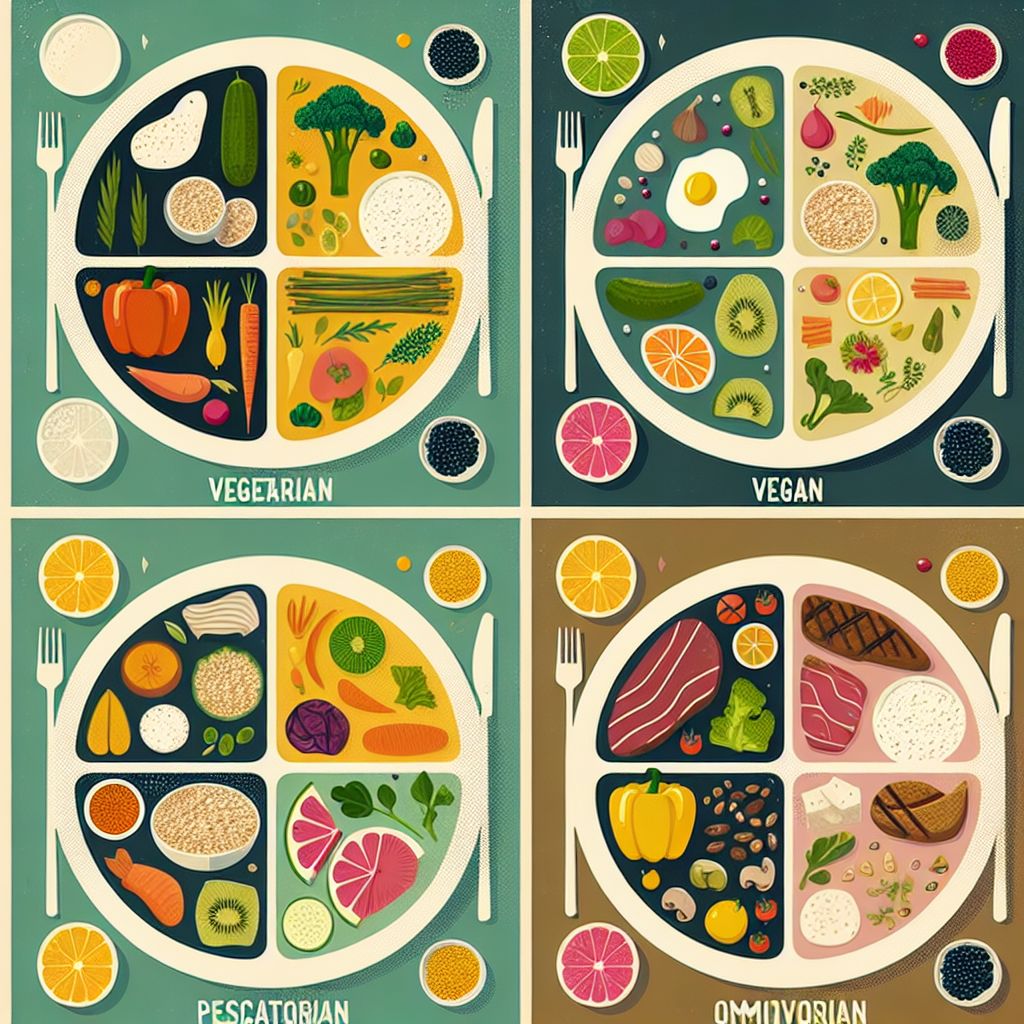
Personalized Weight Loss Diet Plan for Fast Results
Article-at-a-Glance
- Discover why a personalized diet is key to effective weight loss.
- Learn the importance of considering your unique genetic makeup when choosing foods.
- Understand how to incorporate your lifestyle into your diet for better results.
- Get practical steps for identifying your nutritional needs and setting achievable goals.
- Explore the Minimal Program, a tailored approach to weight loss that fits your life.
When it comes to shedding pounds, a one-size-fits-all diet simply doesn’t cut it. You’re unique, and your weight loss plan should be too. That’s why personalization is the cornerstone of an effective weight loss diet. It’s about finding what works for you and your body.
Why Personalization Wins in Weight Loss
Most importantly, personalized weight loss diets are designed to fit your individual needs, which can lead to more sustainable results. Because your body responds differently to certain foods and exercises, a diet tailored to your genetics, lifestyle, and preferences is more likely to help you lose weight and keep it off.
Your Unique Body, Your Unique Diet
Each of us has a unique body that processes foods and nutrients in its own way. That’s why understanding your body’s specific needs is crucial to creating a diet plan that will work for you. This means taking into account not just your weight loss goals, but also your metabolic rate, food sensitivities, and even your blood type.
The Genetic Connection to Eating Right
Did you know that your genetics can influence how your body reacts to different foods? For instance, some people may have a genetic predisposition that makes it harder for them to process carbohydrates effectively, which can impact weight gain and energy levels.
Therefore, by understanding your genetic makeup, you can make smarter food choices that align with how your body works. This can lead to more effective weight loss and overall better health.
Lifestyle Tailoring for Better Results
Besides that, your lifestyle plays a significant role in shaping your diet. Whether you’re a busy parent, a student, or a professional, your daily routine influences what and when you eat. Tailoring your diet to fit your lifestyle ensures that it’s not only effective but also practical and sustainable.
- Assess your daily routine to determine the best times for meals and snacks.
- Choose foods that not only meet your nutritional needs but also fit into your busy schedule.
- Consider meal prepping or healthy grab-and-go options to stay on track.
With these considerations in mind, let’s dive into the building blocks of creating a personalized diet plan that’s tailored just for you.

Building Blocks of a Customized Diet Plan
Identifying Your Nutritional Needs
Before jumping into any diet, it’s essential to identify what your body needs to function optimally. This means getting familiar with the nutrients that fuel your body and understanding your caloric needs. A balanced diet that provides the right amount of protein, fats, and carbohydrates is key. For more detailed guidance, consider exploring weight loss meal plans to better understand the variety and balance needed in a healthy diet.
Factoring In Fitness and Activity Levels
Your activity level is another critical component of your weight loss journey. The amount and type of exercise you get can significantly affect your caloric needs and the types of foods you should be eating. For example, if you’re highly active, you’ll need more carbohydrates for energy.
On the other hand, if your lifestyle is more sedentary, focusing on lean proteins and a higher intake of vegetables might be more beneficial for weight management.
Food Preferences and Allergy Management
Any successful diet plan must also take into account your food preferences and any allergies or intolerances. This ensures that your diet is not only healthy but also enjoyable and free from foods that could cause you harm or discomfort.
For instance, if you’re lactose intolerant, finding alternative sources of calcium and vitamin D will be an important part of your diet plan.
Setting Realistic Weight Loss Goals
Setting realistic weight loss goals is vital for maintaining motivation and measuring progress. It’s not just about the number on the scale; it’s about setting goals that are achievable and that contribute to your overall well-being.
Goals should be specific, measurable, attainable, relevant, and time-bound (SMART). This approach ensures that you have clear milestones to work towards and can celebrate your successes along the way.
Stay tuned for the next part where we will delve into the Minimal Program and how it can be your ally in this journey towards a healthier, happier you.
The Power of One-on-One Guidance
Embarking on a weight loss journey can be overwhelming, but you don’t have to go it alone. One-on-one guidance from a professional can make all the difference. Having a dedicated expert to turn to for advice ensures that your diet plan is not just a list of foods, but a comprehensive strategy tailored to your individual needs.
Why is this personal touch so critical? Because your journey is unique, and your challenges and successes will be too. A dietitian or nutritionist can help you navigate the complexities of meal planning, understand the nutritional content of foods, and make adjustments as your body and preferences change over time.
Moreover, personalized guidance helps in setting realistic goals and keeping you accountable. When you hit a rough patch or reach a plateau, your coach is there to push you through with encouragement and expert strategies to get you back on track.
- Find a certified dietitian or nutritionist who specializes in weight loss.
- Ensure they understand your lifestyle, preferences, and any medical considerations.
- Commit to regular check-ins to adjust your plan and celebrate your victories.
Medications to Complement Your Efforts
For some, diet and exercise alone may not be enough to achieve desired weight loss goals. In these cases, medications can play a supportive role. Weight loss medications are designed to help you feel full sooner, reduce your appetite, or absorb fewer calories from the food you eat.
These medications are not a silver bullet, but when combined with lifestyle changes, they can give you an extra edge. Always consult with a healthcare professional to determine if weight loss medications are appropriate for you and how they can be integrated into your personalized plan.
The Role of Community in Your Journey
Besides professional guidance and potential medication, the support of a community can be invaluable. Sharing your journey with others who understand the challenges of weight loss can provide encouragement and accountability. Whether it’s a local support group, an online community, or a group fitness class, connecting with others offers emotional support and motivation.
Your First Steps Towards a Tailored Diet Plan
The first step towards a personalized weight loss diet is to evaluate your current eating habits. This involves keeping a food diary for a few days to a week. Track everything you eat and drink, along with the times of day and your feelings at the time. This will help you and your dietitian identify patterns and areas for change.
Next, assess your nutritional knowledge. Understanding the basics of macronutrients (proteins, fats, and carbohydrates) and micronutrients (vitamins and minerals) is essential. This knowledge will serve as the foundation of your diet plan, helping you to make informed decisions about what to eat.
Finding Your Dietitian Match
Choosing the right dietitian is like finding a good friend; they need to understand you and support your goals. Look for a dietitian who is not only qualified but also someone you feel comfortable with and who communicates clearly. They should be someone who listens to your concerns and is flexible enough to adjust your plan as needed.
Assessing and Adapting Your Current Habits
Once you’ve started working with a dietitian, they’ll help you assess your current eating habits. Together, you’ll identify what’s working and what isn’t. This could mean swapping out certain foods, changing meal times, or adjusting portion sizes. Adapting your habits is a process, so be patient and open to trying new strategies.
Remember, small changes can lead to big results. Start with simple swaps, like choosing whole-grain bread over white, or adding an extra serving of vegetables to your plate. These minor tweaks to your diet can kickstart your weight loss without feeling overwhelming.
Strategizing for Success: Meal Planning
Meal planning is a critical component of a successful diet. It involves more than just choosing healthy foods; it’s about creating a structured plan that fits into your lifestyle. This means considering your schedule, cooking preferences, and budget. Your dietitian can help you create a meal plan that’s practical, enjoyable, and effective for weight loss.
Strategizing also means preparing for the unexpected. Always have a backup plan for busy days, such as healthy frozen meals or quick recipes that you can whip up in no time. This way, you’re less likely to fall back on unhealthy convenience foods when life gets hectic.

Finding Your Fit: Meal Plan Options
There are numerous meal plan options available, and finding the right one for you is a matter of trial and error. Some people thrive on structured plans that outline every meal, while others prefer more flexibility. Consider starting with a structured plan and gradually introducing more flexibility as you become more comfortable with making healthy choices.
Your dietitian can help you explore different meal plan options and find one that aligns with your weight loss goals, food preferences, and lifestyle. They can also help you understand how to balance your meals to ensure you’re getting the right nutrients in the right proportions.
Minimal Program: Tailored for Transformation
One popular option for a personalized diet plan is the Minimal Program. This comprehensive program takes into account your unique genetic makeup, lifestyle, and environment to create a strategy that’s effective for you. From one-on-one consultations with weight management clinicians to easy medication delivery and ongoing support, the Minimal Program simplifies the weight loss journey.
Other Leading Custom Diet Plans
There are other leading diet plans you may consider as well. These range from commercial programs with pre-packaged meals to those that focus on whole foods and cooking at home. When exploring these options, compare them against your personal preferences, budget, and lifestyle to find the best fit.
For example, some people might prefer a plan that includes community support, while others might value the convenience of meal delivery. It’s all about what works best for you and your unique circumstances.
Measuring Progress Beyond the Scale
Weight loss isn’t just about the number on the scale. It’s also about how you feel, how your clothes fit, and improvements in your overall health. That’s why it’s important to find other ways to measure your progress. This can include tracking inches lost, improvements in energy levels, or how well you’re sleeping.
The Significance of Non-Scale Victories
Non-scale victories are those wins that have nothing to do with your weight. Maybe you climbed a flight of stairs without getting winded, or you noticed that your favorite jeans fit more comfortably. These victories are significant and deserve to be celebrated as they reflect the positive changes you’re making to your health and lifestyle.
Adjusting Your Plan: Momentum and Consistency
Finally, remember that your diet plan is not set in stone. It should evolve as you do. Regular check-ins with your dietitian and monitoring your progress are crucial. If something isn’t working, don’t be afraid to adjust your plan. Flexibility is key to finding a sustainable approach to weight loss that you can maintain for life.
Stay tuned for the final part of this article, where we’ll discuss how to maintain momentum and navigate challenges for long-term success.
Maintaining momentum in your weight loss journey is crucial for long-term success. It’s about more than just reaching your goal weight; it’s about transforming your lifestyle to support a healthier, happier you indefinitely.
Consistency is key. Even when the novelty of a new diet wears off, sticking to your healthy habits is what will help you maintain your weight loss over time. This is where the true challenge lies, but it’s also where you can truly prove to yourself just how capable you are.
Adjusting Your Plan: Feedback and Flexibility
As you progress on your weight loss journey, your body’s needs may change. This could be due to weight loss, a change in activity level, or other factors. That’s why it’s important to regularly review and adjust your diet plan based on ongoing feedback from your body and your dietitian.
For instance, you may find that you need more protein as you increase your activity level, or you may need to adjust your calorie intake as you lose weight. Flexibility in your diet plan allows you to make these adjustments seamlessly, ensuring that your plan always aligns with your current needs.
Remember, a personalized diet is not a static document; it’s a living guide that evolves with you. Staying flexible and open to change is how you’ll continue to see results and maintain your weight loss long term.

Maintaining Momentum: Staying Motivated for Long-Term Success
Staying motivated can be one of the toughest parts of a weight loss journey, especially after the initial excitement wears off. To keep the momentum going, it’s important to find sources of inspiration and remind yourself why you started this journey in the first place.
Setting new goals, trying different activities, or even updating your wardrobe to match your new body can all serve as motivation boosters. Remember, weight loss is a journey, not a destination, and there will always be opportunities to set new challenges for yourself.
Celebrating Milestones
Don’t wait to reach your final goal to celebrate your success. Every pound lost, every inch gone, and every healthy choice made is a victory worth celebrating.
Celebrating milestones along the way not only boosts your motivation but also helps you to appreciate the journey. Whether it’s treating yourself to a new book, a massage, or a day out with friends, find ways to reward yourself that don’t revolve around food.
And when you do reach significant milestones, share your success! Whether it’s with friends, family, or your support community, sharing your achievements can help you to feel proud of what you’ve accomplished and motivated to continue.
Navigating Challenges and Setbacks
Challenges and setbacks are a normal part of any weight loss journey. The key is not to let them derail you completely. When you face a setback, take a step back and assess what went wrong. Use it as a learning experience to strengthen your resolve and refine your strategy.
Remember, every challenge is an opportunity to grow stronger. Whether it’s a plateau in your weight loss or a slip-up in your diet, it’s not the end of the world. Acknowledge it, learn from it, and then get right back on track with your plan.
Frequently Asked Questions
What Makes Personalized Diets More Effective?
Personalized diets are more effective because they’re tailored to your unique body, preferences, and lifestyle. They consider factors like your metabolic rate, food sensitivities, and activity level, which can all impact how your body responds to different foods and diets. For more detailed guidance, explore this weight loss meal plan resource.
How Often Should I Update My Weight Loss Diet Plan?
You should update your weight loss diet plan whenever there’s a change in your lifestyle, goals, or body’s needs. This might be every few months or more frequently if you’re actively losing weight. Regular check-ins with your dietitian can help determine the right frequency for updates.
Can a Personalized Diet Plan Help with Medical Conditions?
Absolutely. A personalized diet plan can be tailored to accommodate and even improve certain medical conditions. Always work with a healthcare provider to ensure your diet aligns with your medical needs.
What If I Have a Very Busy Lifestyle?
Even with a busy lifestyle, a personalized diet can be designed to fit. Meal prepping, healthy on-the-go options, and structured meal plans can all help you stay on track despite a hectic schedule.
Is the Minimal Program Suitable for Everyone?
The Minimal Program is designed to be adaptable to a wide range of individuals. However, everyone’s needs are different, so it’s best to consult with their team to determine if it’s the right fit for you. For those looking for alternative weight loss strategies, exploring options like intermittent fasting may be beneficial.

Hi, I’m David, the founder of Semaglutide Group and a passionate advocate for busy moms looking to reclaim their health and well-being. I understand the challenges that come with balancing family responsibilities while trying to maintain a healthy lifestyle. My knowledge of semaglutide has been impactful, and now I’m on a mission to share this knowledge with other moms who are eager to find a sustainable path to weight loss.
8 thoughts on “Personalized Weight Loss Diet Plan for Fast Results”
Leave a Reply
You must be logged in to post a comment.

[…] help you feel full, reducing the overall amount you eat. Supplements with fiber can be an aid in weight management, but they’re no replacement for the fiber you get from fruits, veggies, and whole […]
[…] your body’s specific needs is crucial in selecting the right diet for you. Factors such as age, hormone levels, and personal health goals should guide your decision-making […]
[…] You wouldn’t set off on a road trip without a map, right? Similarly, you need to plan your fasting and eating schedule, figure out your macros, and prepare your meals. Let’s get you […]
[…] meal because he no longer experiences that powerful midday hunger. These stories demonstrate how SeroLean can change not only your eating habits, but your way of […]
[…] can impact weight and overall health. BistroMD is aware of this and provides tailored support with meal plans designed to help navigate these changes. These meals concentrate on the nutrients women need most during this stage, such as calcium for […]
[…] first steps. And the best part? You don’t have to do it alone. With a plan like the one from BMI Doctors, you have a team ready to support you every step of the […]
[…] importantly, conscious eating can be the key to unlocking sustainable weight loss. It’s not a quick fix; it’s a […]
[…] of what life has in store for you, you can continue to press on. This is the advantage of a flexible workout plan; it evolves and adapts with […]